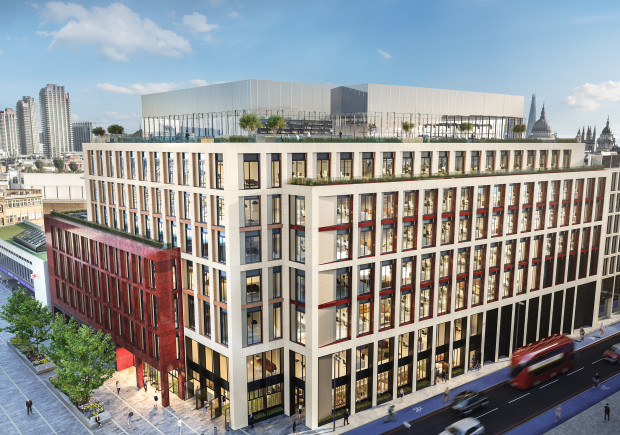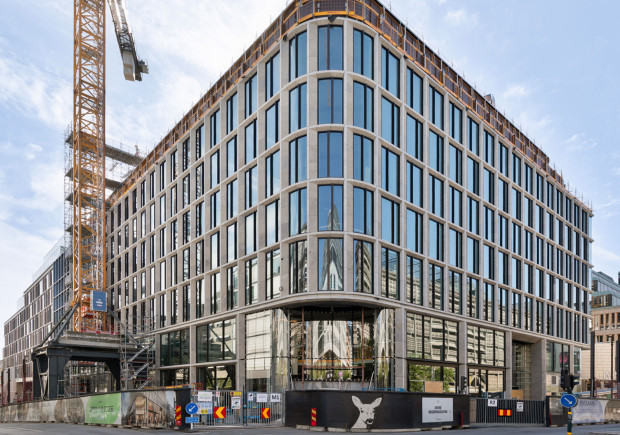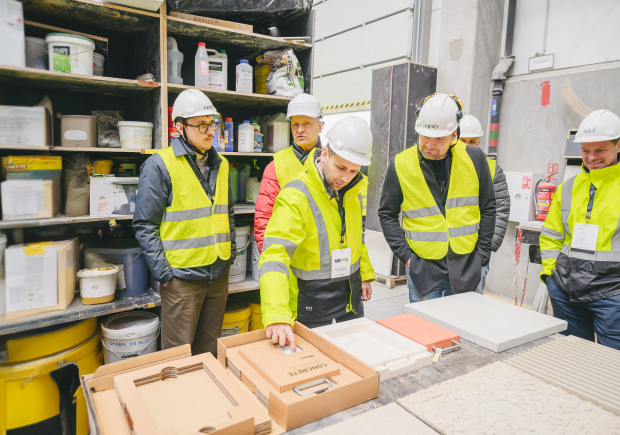The current UPB project in London - Bloom Clerkenwell (located next to Farringdon Station) has specific criteria to be met – one of them is EN 14019 standard that defines safety in order not to endanger people. The other criterion is a specific requirement defined by the client – the cleaning of the building’s glass will be carried out by industrial climbers; therefore, the glass has to be adjusted to such activities.
Initially, a feasibility study was carried out, performing more than 50 simulations in the SJ MEPLA programme with various glass combinations, impact heights, weight etc. and the engineers came up with two possible variants: double-glazed glass with laminated outside layer of 12 and 16 mm thickness. In order to determine the most suitable one, it was decided to carry out a real-life test.
According to EN 14019 standard (I3/E3 class) the glass must withstand a 50 kg impact in the middle of the element from a height of 450 mm. Whereas, in order to test the client’s requirements regarding the possible industrial climber’s impact, a 50 kg impact from a height of 800 mm was measured. Since the impact caused by industrial climbers could be applied at any point on the glass, the UPB specialists used the methods described in the German standard and applied the impact to the corner and the middle of the glass. Under these conditions, the glass may crack, but no more than 50 grams of it can fall out.
As a result, when choosing between 12 and 16 mm thick double-glazed glass, it was proven that the 12 mm glass meets the requirements and can perform the specified functions. This also led to a more efficient use of material and it is important to mention that thinner glass ensures better light transmission and is lighter.



